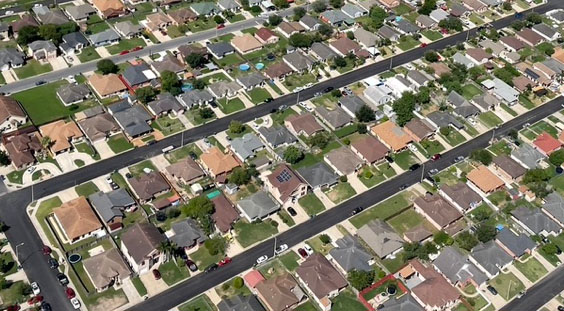A September routine interim charge hearing of the Texas Senate Committee on Local Government turned out to be a packed room, with an overflow room almost full as well. People came out to talk about the affordability problems across our state, including those representing Big A Affordable Housing providers, those representing developers and home builders, and environmental, justice, and affordability advocates.
The hearing received more attention than normal interim hearing tend to get, with organizations posting their positions, coverage in the Dallas Observer, My High Plains, and KXAN, and an excited tweet by Chair of the Committee, Senator Paul Bettencourt:
Following on this momentum, Phyllis Snodgrass and Nicole Nabulsi Nosek, of Austin Habitat for Humanity and Texans for Reasonable Solutions (respectively), co-penned an OpEd in the Austin American Statesman calling for cities to get ahead of the next legislative session to remove exclusionary zoning and streamline permitting processes to allow people to find affordable houses in the places they want to live.
Then Grimes came out as a YIMBY.
And the Speaker of the Texas House of Representatives Dade Phelan called for reform on twitter:
Farm&City was there at the hearing and our Executive Director presented the following prepared remarks to the committee. You can watch testimony on this item in the video here, with discussion beginning at 0:04:00, with Crossley starting at 2:48:30, and the entire discussion of affordable housing ending at 3:29:30.
Prepared Remarks: Issues related to affordable housing, homelessness, and methods of providing and financing affordable housing
Jay Blazek Crossley
Executive Director
Farm&City
Texas Senate Committee on Local Affairs, September 13, 2022 Hearing
Texas State Capitol, E1.016
Austin, Texas
Interim Charge: “Affordable Housing: Study issues related to affordable housing, homelessness, and methods of providing and financing affordable housing. Make recommendations to improve transparency and accountability, as well as to better utilize existing federal, state, and local programs.”
Thank you Chair Bettencourt and members of the committee. My name is Jay Blazek Crossley and I am Executive Director of the 501c3 nonprofit, Farm&City. We work on improving Texas public policy, primarily around transportation and urban planning issues.
The State of Texas has been growing less affordable for many people, especially those wanting to live within our core urban cities, where the majority of Texas jobs are today and the vast majority of growth of jobs is expected.
How to make Texas metro regions affordable is a complex question and our current public debates tend to get many key factors wrong.
Thus, I urge you to think of these issues with reliable data that reflects the experiences of home-owners and renters, by focusing on affordable median housing costs for all houses, whether they be apartments, four-plexes, or single family homes, not just sale prices for single family homes.
In spite of the real lived experience of many Texans feeling they have to move further into the suburbs to afford housing, when we divided the Austin region up into urban, suburban, and rural densities, we found that the urban areas are still the most affordable places to live when you look at median housing cost – including both renters and homeowners. The vast majority of people living in poverty in major Texas metro regions still live in the more dense parts of our core cities, because they cannot afford the transportation or housing costs in less dense places.
I also urge you to consider that the costs of transportation for Texas families are higher than for most Americans. We have heavily subsidized the choice to drive for decades while requiring car-dependency through land development codes, and we have achieved the expected result of Texans finding that they are forced to drive more than they want to. There are areas of our major metropolitan regions where people are paying more on average every month for their transportation than housing.
Legalizing walkable urban density and encouraging transit-oriented development must be part of the state’s affordability strategies. I looked at the changes in median housing costs across Austin from 2011 to 2019. There are two core neighborhoods that actually didn’t see the kinds of increases in costs that we saw across the region. These are the two most densely populated zip codes in the region: West Campus and East Riverside. In both of these neighborhoods, zoning regulations have generally allowed for the market to provide housing without requiring car-dependency or bizarre rules like height limits. And this has worked.
What the City of Austin’s leadership was trying to do with CodeNEXT was to share this effective formula across the city to allow significantly more people to live healthy, affordable lifestyles where they don’t have to drive as much.
But this was blocked through the use of a 1927 state law that gives property owners an exclusive veto to block affordability reforms – even though 55% of the people who live in Austin rent their home.
We should remove outdated, cumbersome barriers that make it harder to build the mixed-use, mixed-income, walkable urbanism that about half of Texans wish they could find. We should focus tax policy reforms on reducing the tax burden on low income Texans. We should end policies that impose the choice of car-dependent lifestyles on the millions of Texans who don’t want that. And the State of Texas should invest in transportation and housing solutions that work for building prosperous dense urban places in our major cities as well as restoring and refilling our traditional rural and suburban town centers.
Thanks.

